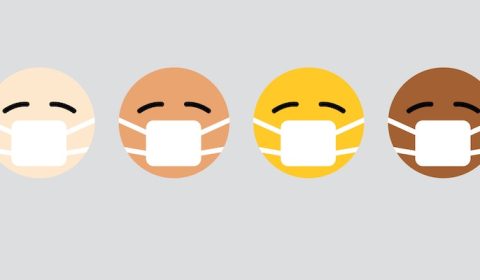A psychological perspective on child Q and police in schools

“Someone walked into the school, where I was supposed to feel safe, took me away from the people who were supposed to protect me and stripped me naked, while on my period”
Child Q (Local Child Safeguarding Practice Review, March 2022)
Throughout my career as a psychologist and educator, I have always held a particular interest in adolescent development and identity formation, and the factors which best support this. News of the traumatic strip search of 15 year old Child Q in a Hackney school has prompted me to further consider the role of psychology in terms of better understanding power dynamics between students and adults, particularly within a secondary school environment.
A key element of the Safeguarding Practice Review about Child Q highlighted how school staff deferred to the authority of the police and should have challenged this to uphold the best interests of the child. However, I wondered if this is a realistic expectation to place on teachers once police are directly involved, and so I wished to consider the issue in more depth through this blog post.
For context, a New Statesman Freedom of Information request revealed that in 2020-21, 683 police officers were working full-time in UK schools with over half of these in London, predominantly as part of the Safer Schools programme. This scheme to increase police presence in schools is based on the belief that police officers would become figures of trust within these environments, but has been opposed by a variety of community groups. This is against a backdrop of declining adult public trust in the Metropolitan Police, particularly among women and people from ethnic minorities, with less than half of adults questioned in a recent YouGov poll having a ‘great deal’ or a ‘fair amount’ of trust in the police. The strip search of Child Q was not an isolated incident, and another Freedom of Information request has revealed that 9,088 strip searches were carried out on children between 2016 and 2021 by the Metropolitan Police, with 2,360 on under 16s, and with Black children overrepresented in these searches.
It is clear that police officers occupy a position of significant power within society, in particular relative to children and adolescents, but also school staff. These powers include the right to deprive individuals of their freedom, search them, seize their property, and use force against them. These powers are legally permitted under specific circumstances, but Poyser (2004) highlights how significant use of discretion is also a feature of UK policing. Guinote (2017) describes how, because powerful individuals tend to keep a high level of focus on their own goals, the powerful can often discount the needs of others and rely on mental shortcuts and stereotypes when they make decisions.
This fits with the conclusion of the Safeguarding Practice Review, which highlights the influence of racism in how Child Q was treated by the police. In this instance, it is evident that the police’s power and motivation to pursue their goal of investigating a possible crime took precedence over Child Q’s needs and the responsibility of the school to prioritise her welfare and education.
Guinote (2017) also highlights that power has potentially detrimental effects on social attention and perspective taking, providing a possible psychological explanation for the perceived deferral of school staff to police authority described in the Safeguarding Practice Review document. The presence of a police officer within a school is likely to focus attention towards a binary question of whether a crime has occurred or not, and once this dynamic has been established, it will become very challenging for either school staff or children to effectively assert themselves and their perspective around a change of focus or what they believe is right, given the strength of the power imbalance involved.
Since the publication of the Safeguarding Practice Review about Child Q, the National Education Union has backed a motion for police officers to no longer be based permanently in schools, and to be used only as a “last resort” by school staff. This could create a space which moves attention away from a laser focus on individual responsibility and sanction, towards a relational approach, based on the idea that children need guidance and consequences that teach, rather than punish.
Educational Psychologists can play a role here in supporting schools in understanding behaviour as the product of a complex set of social interactions and environmental factors, of which the individual is just one part. I would be really interested to hear of any Educational Psychologists around the country who are successfully engaged in this type of work in their schools.
References
Guinote, A. (2017). How power affects people: Activating, wanting, and goal seeking. Annual Review of Psychology, 68, 353-381.
Poyser, S. (2004). The role of police ‘discretion’ in Britain and an analysis of proposals for reform. The Police Journal, 77 (1), 5-18.




